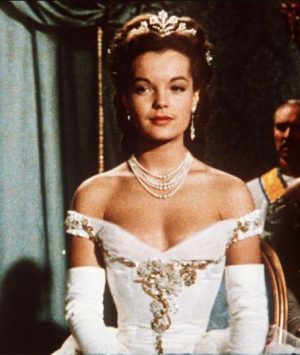Princess Elisabeth Death
Ss passed away on September 10, 1898 at the age of 60 in Geneva, Switzerland. Ss's cause of death was assassinated by stabbing.
When did Princess Elisabeth die?
September 10, 1898How did Princess Elisabeth die? What was the cause of death?
Assassinated by stabbingHow old was Princess Elisabeth when died?
60Where did Princess Elisabeth die? What was the location of death?
Geneva, Switzerland
Princess Elisabeth Birthday and Date of Death
Princess Elisabeth was born on December 24, 1837 and died on September 10, 1898. Ss was 60 years old at the time of death.
Birthday: December 24, 1837
Date of Death: September 10, 1898
Age at Death: 60
Is Princess Elisabeth's father, Duke Maximilian Joseph in Bavaria, dead or alive?
Duke Maximilian Joseph in Bavaria's information is not available now.
Is Princess Elisabeth's mother, Princess Ludovika, dead or alive?
Princess Ludovika's information is not available now.
Princess Elisabeth's sister :
Princess Elisabeth's sister, Helene, is still alive and kicking at the age of 49. She is Hungarian and has had a career as an adult movie star.
Princess Elisabeth's brother :
- Karl Theordor
Princess Elisabeth - Biography
The ill fated Empress of Austria was born as Duchess Elisabeth in Bavaria on Christmas eve, December 24 1837, which ironically promises a happy and fulfilled life. To her friends, family and numerous admirers worldwide, she was known simply as "Sisi." While Elisabeth never indulged in politics, aside from her influence on the unification of Austria and Hungary, she become known and revered worldwide as a cultural icon; a tragic beauty who spent all her life trying to break free from conventional court protocol and live freely on her own terms.Elisabeth was spoiled from early age by her eccentric father, the Duke of Bavaria. She was raised as a commoner and was a tomboy for most of her youth, but all of that changed in 1853, when Elisabeth and her mother Ludovika accompanied her sister Helene to the Austrian resort in Bad Ischl, where an arranged engagement was to take place between her and the young Emperor of Austria, Franz Joseph, who was also their first cousin. Helene spent years training in proper Austrian court matters and multiple foreign languages, but much to everyone's shock, Franz Joseph chose the shy 15 year old Sisi, possibly to spite his domineering mother Sophie. Refusing to listen to reason, he announced Elisabeth as his bride and the two were married in Vienna at St. Augustine's Church on 24 April 1854.Elisabeth's married life was deeply unhappy. She was constantly scrutinised and repressed by her mother-in-law and resented by the Austrian royalty because of her eccentricities. Her lack of contact with the outside world and severe limitations of her day to day activities caused deep melancholy in Elisabeth, and she would constantly fall victim to various illnesses. Still, Franz Joseph loved his wife deeply and they managed to have four children in quick succession.Sisi struggled for control of her children with Sophie, but the one time she was able to take back her firstborn daughter resulted in tragedy. The tiny infant contracted an unknown illness while vacationing with Elisabeth in Hungary and quickly succumbed. The death of her two year old daughter left Elisabeth deeply shaken, an event from which she never recovered.As years went by, her marriage to Franz Joseph continued to deteriorate. Elisabeth held to various liberal beliefs and sympathised with the Hungarian cause & other oppressed groups of people; she enjoyed Jewish and Eastern culture, for which she was despised in Austria, but adored in the rest of the world. Estranged from her archaic, autocratic husband, Elisabeth spent her every waking moment travelling the world, visiting places and countries that were taboo for most European royals.In 1889, another tragedy occurred that shattered the last remnants of Elisabeth's life. Her only son, 30-year-old Crown Prince Rudolf and his young lover Baroness Mary Vetsera were found dead, under mysterious circumstances at Rudolf's hunting lodge in Mayerling, Lower Austria. When the news hit Elisabeth, she refused to believe it and did not even attend her own son's funeral. But soon, the horrible realisation crept up on her; an unimaginable tragedy has occurred and there is no road back. The next day, Elisabeth went into the Imperial Crypt and spent the entire night trying to talk with her son's cold body. Elisabeth blamed her genes and the family inbreeding for her son's fragile mental state and never forgave herself for the two Mayerling deaths.For the next decade, Elisabeth would continue to travel the world, dressed in permanent morning. She still remained an icon, a ghostly image of beauty with long silky hair, dressed in a concealing black gown. Her massive white parasol and fan that were used to shield herself from curious admirers and photographers had become her trademarks.The endless chain of misfortune that haunted Elisabeth all her life finally caught up with her on September 10th, 1898. In the time of deadly political turmoil, Elisabeth was no more worried about anarchists and assassins than she was concerned with bad weather, often refusing escorts and police protection.The Empress was on her way to board a lake steamer in Geneva when she was attacked by a mad Italian anarchist named Luigi Lucheni in a senseless act of violence. Lucheni stabbed Elisabeth straight through her upper torso, breaking a rib, collapsing a lung and piercing her heart. Due to Elisabeth's tight corset, she didn't feel a thing and assumed Lucheni was simply a vagrant trying to steal her jewellery. Only two hours later, when she collapsed on the deck of the steamer, did her protégé realise the severity of the situation. Elisabeth's last words were "What happened to me?"In Luigi Lucheni's eyes, he was murdering a member of a corrupt and oppressive ruling class, but in a horrible twist of irony, he just murdered another survivor of the brutal and heartless society he reviled. When asked why he attacked a defenceless woman, Lucheni's answer was simply "I wanted to kill a royal. It did not matter which one."In German film and television, Empress Elisabeth has been highly glamourized by Romy Schneider in the "Sissi Trilogy." Only by the 1970's was she shown in a more realistic light when Schneider reprised the role in Visconti's film "Ludwig II". Two musicals have been based on her life. In 1932 Fritz Kreisler wrote an operetta simply entitled "Sissy." A film adaptation, "The King Steps Out", starring Grace Moore, soon followed. It took more than fifty years before any other composer attempted another musical treatment. Michael Kunze and Sylvester Levay's "Elisabeth," an incredibly dark and dramatic portrayal of Elisabeth as the symbol of death of the archaic monarchy order, received great acclaim and has been translated into seven languages since 1992. A testament to the staying power of the Sisi myth.An unhappy and lonely woman, Elisabeth hated the Austrian court and her pampered lifestyle. In many ways, she was decades ahead of her time, spending most of her life searching for "self realisation" and her own personal happiness. She found neither.








